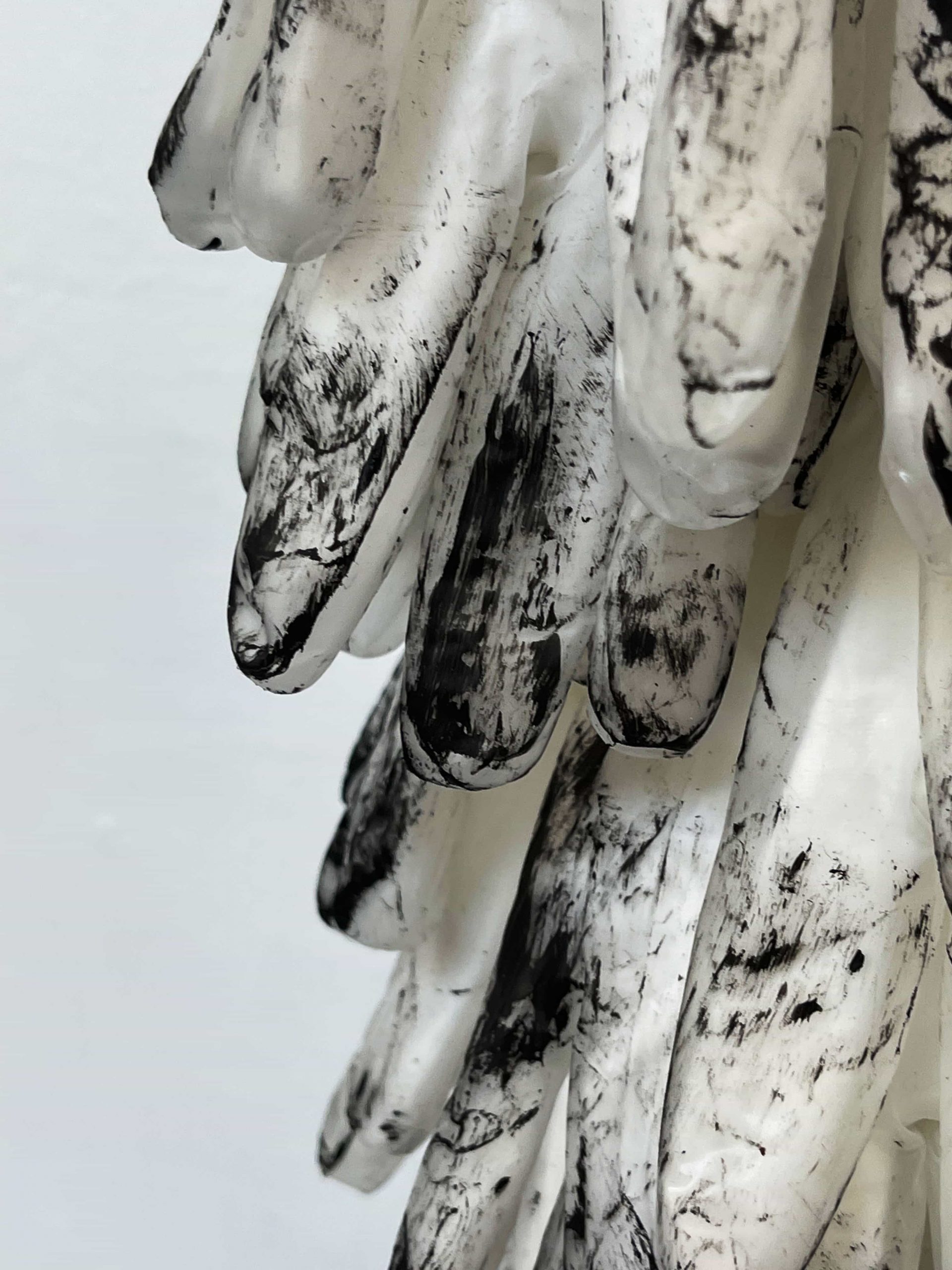krispengsy.com
Email: krispengsy@gmail.com
Instagram: @krispengsy
Artist Statement
Working in installation, calligraphy, and painting, Kris Peng Siyun explores the failures in communication, the passiveness in writing, and the inaccessibility of thoughts. Her work commonly speaks about the consensus and untranslatability in language and plays with the bodies and gestures involved in writing. Piling, stacking, weaving, and hanging found objects or purchased commodities, she explores the meanings of words and the void between marks and understandings.
Peng’s installation Can you write me a poem? (I) (2022) incorporates industrially produced gloves, both milky-white plastic and fabric, stained by black oil ink. The work extracts from Peng’s memory of teaching her illiterate grandmother to read by reciting to her the Buddhist Heart Sutra. The artist gives form to the powerlessness in the teaching process: neither she could explain what the sutra means nor could her grandmother remember anything from the repeated process. The only remnant of the exchange was the stains on her finger when she turned the pages.
Can you write me a poem? (II) (2022) consists of a line of aquarium stones stained with ink that hang by fishing lines attached to a tilting fan. The fan constantly is tilting to make the stones move up and down and leave traces on the paper beneath. The dialogue between the stones and the fan is alive within the ecosphere, but the marks of the stones only make sense within the consensus of their own, and therefore are not comprehensible to the general viewer. The work is a representation of a conversation with oneself, which is introverted, silent, muted, and unwelcome for translation.
Kris Peng Siyun (b. China) is an artist based in New York and Los Angeles. Deeply rooted in Chinese traditional aesthetics, Taoism, and Buddhist philosophy, she translates her encounters with life into paintings, sculptures, installations, and publications. With a language of ink and paper, along with many other materials that speak to her, Peng presents the failures in communication, the passiveness in writing, and the inaccessibility of thoughts.

